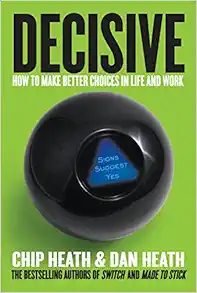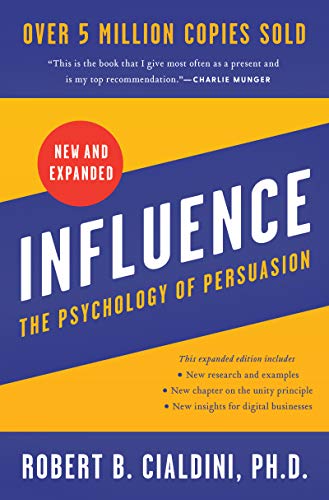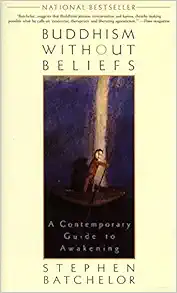Hi all,
Another mini book report for you! As per usual, they are listed in the general order of how much I recommend them and/or how much I enjoyed them.
Totally unrelated, I keep telling myself I'm going to finally pull the trigger on putting up the Vickrey auction for Voltmeter Clocks. Next week is the week, I tell myself. Stay tuned. In the meantime, back to the book report.
Mini Book Report

Radical Focus - I highly recommend this book about OKRs. It mirrors some knowledge I've learned the hard way and expands on it. Basically, the objective should be qualitative and inspiring (often using superlatives!), while Key Results are numeric, and - this is important - are reviewed frequently, as often as every 1-2 weeks. Quarterly or bi-quarterly is not often enough. Here are some additional lessons learned
- When it's impossible to make a weekly measurement or metric evaluation, then measure at the end of the quarter, but use a confidence score every week. This keeps your eye on the prize.
- Quantity Key Results should often be balanced with a Quality Key Result.
- The author's suggested reporting format uses status of KRs, near term priorities, long term and "coming next" items that may be important to communicate, and health metrics. The health metrics are things you need to do to keep the lights on, but aren't noteworthy unless they're unhealthy, in which case, the OKRs would be in jeopardy.
- Don't get hung up trying to cascade goals. Preference is to have individual product teams take on their own goals and make sure they align to a single company wide OKR.

SPIN Selling - This is a landmark sales book that's remained popular for at least the last 30+ years. It dispenses with the "Always Be Closing" philosophy of high pressure sales in favor of understanding customer problems, using Implication questions to really hone in on the pain (almost the opposite of The Mom Test), and matching benefits to customer needs.
Big takeaways for me
- A meeting isn't a success unless you're moving things forward. Getting a next meeting with a decision maker, getting a key stakeholder on board, initiating a procurement cycle, etc. A meeting without a next step (or worse, a "check back in" or "keep in touch") is not a success or progress towards a sale.
- Most people know the difference between features & benefits. The author goes one distinction further and separates between Benefits and Advantages. In short, an Advantage of your product or service only becomes a Benefit if it addresses a customer pain point.

Build - Highly recommend Tony Fadell's book on his career experiences and everything that lead to the iPad, iPhone, and Nest Thermostat and Nest Protect. He covers topics as diverse as team building, operational cadence, defining "good enough" (hint, write a mock press release first to know what "good enough" looks like), organizational growth breakpoints, hiring/firing, managing boards, branding/marketing, and more. Tony learned some painful lessons the hard way early in his career, and seeing the path he followed is inspiring.
Big takeaways for me:
- I've always believed in meeting cadence, but Tony drives his product cadence at the top, from the marketing calendar. Setting deadlines is often an arbitrary chicken or egg exercise of "when do you want it" vs. "when can I have it?". Using annual and biannual events (not to mention Christmas!) means you need to have something worth showing to stay relevant, or people will forget about you. This is what sets the pace.
- Tony introduces the idea of "seed crystals" when starting a company. These are the people so good that they draw other people to them.
- Tony talks about vision vs. metrics for zero-to-one, 2nd gen, and 3rd gen products. Zero to one products are really about vision (see the mock press release, above), and later generations will be more about moving the needle on metrics, once you know what metrics are important. (Sidebar, this is somewhat at odds with Radical Focus, and I haven't fully thought through how to resolve the discrepancy, other than using confidence scores, rather than actual metrics, is the answer. )

Decisive - Fascinating book about the psychology of decision making. I read this on a a recommendation from Continuous Discovery Habits. Basically, the author shares a few techniques for avoiding some common traps and biases that make it hard to make good decisions. Some of the highlights are
- Either/or decisions are a red flag. Look for ways to do both and also look to redefine the problem. Broaden your horizons and find more choices.
- Create space to be able to change your mind and challenge assumptions. What would have to be true for a choice to be correct? What would have to be false? Can you research those things?
- Try before you buy. Instead of fully committing to a choice, is there a way to test it first?
- Set up guardrails, for example, "We will revisit X decision if we see Y data, or Z market conditions."

Why Buddhism is True - The author takes concepts in neuroscience and makes connections to Buddhist teachings. In short, the human brain evolved special "subsystems" for dealing with personal safety, food drive, reproductive drive, family care, and broader community and social interaction. These systems worked well for hunter-gatherers, but aren't necessarily well adapted to modern life. (The canonical example is ruminating over embarrassing yourself in front of a stranger. Staying on good terms with your hunter-gatherer tribe is critically important, so your brain should worry about how other people think of you, but strangers you'll never see again probably aren't worth the time worrying.)
In a similar fashion, the human tendency to become ungrateful for the status quo and hunger for more, is again, probably more useful for hunter-gathers than for modern life.
The key to quieting the subsystems that drive internal thought processes and vie for attention in the conscious brain is breaking the feedback loops that say paying attention to those neural circuits is working.
This aligns with the author's experience with Buddhist teachings and meditation practices, to recognize those thoughts as cravings or desires that will ultimately lead to dissatisfaction, and rather than trying to fight them, just acknowledge them, until you grow bored with them, and they subside.
There's more to the book that I'm glossing over, and the author gets into more abstract ideas and concepts of self and Nothingness, and arbitrariness of drawing a line between yourself and the world around you ultimately, it's just signals to the brain. This book isn't for everyone, but if you're interested in meditation, Buddhism, or neuroscience, this is worth reading.

Influence - The book identifies seven quirks of human behavior where people act in seemingly illogical or arbitrary fashion. For example, the principle of Reciprocity means that if someone invites us to dinner, or makes a kind gesture, we feel obligated to later return the favor. Social Proof (everyone else is doing it), FOMO (or scarcity), Consistency (stubbornly staying the course, rather than changing your mind, just to appear consistent, or to avoid the appearance of having been wrong in your original assessment.) Honestly, this is one where you could probably just Google for a summary.

Pencil Me In - A cute book with different ideas for making visual notes. It won't magically make your drawing better, (for that, you'll need to practice), but it does contain great sources of inspiration for developing a visual language for business sketching.

Buddhism Without Beliefs - I read this as a follow up to Why Buddhism is True. It focuses more on the practice of Buddhism and the teachings of the Buddha, and why these ideas are still valid, without needing to subscribe to Buddhist ideas of reincarnation or achieve Nirvana.

UX for Lean Startups - Just skip this one. My friend's review was "I give this book to people who don't know what UX is but should know about it, like CEOs. It's not for learning UX."

This Book Will Make You Kinder - This came from the "return to shelves" cart at the library, which means someone from my neighborhood thought this book was worth checking out. That person was wrong. Let me save you some trouble and I'll summarize it for you - "The more you know about other people, the nicer you'll be to them." Boom. I just saved you several hours.
